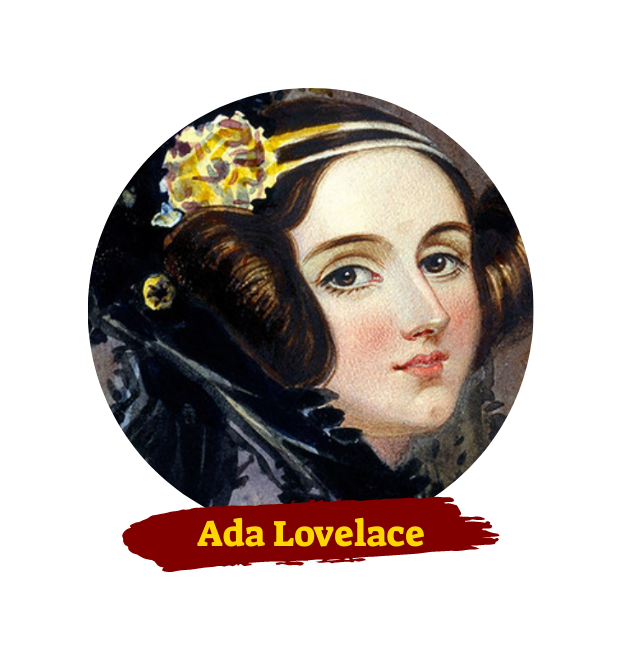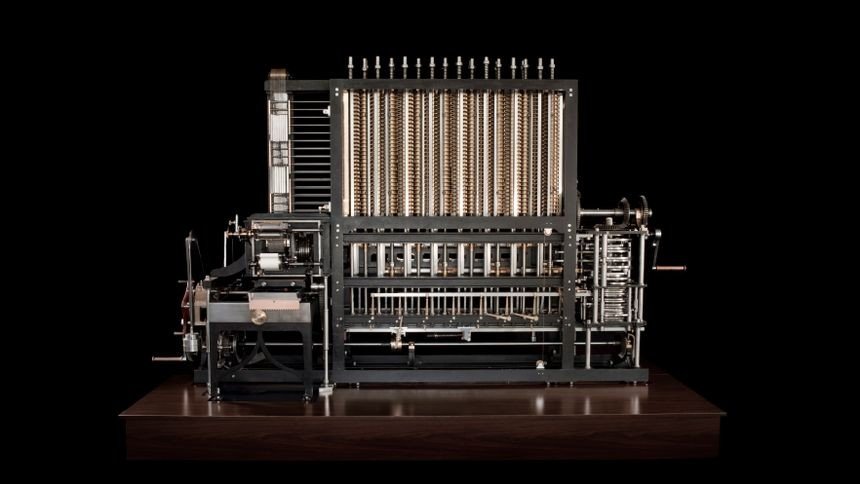Who was Charles Babbage?
"Another age must be the judge." -Babbage, 1837
Biography
Early Life
Charles Babbage was born on December 26, 1791, in Walworth, a district of London, United Kingdom. The son of Benjamin Babbage, a London banker. In his youth, Babbage was his own instructor in algebra, of which he was passionately fond, and was well read in the continental mathematics of his day. Upon entering Trinity College, Cambridge, in 1811, he found himself far in advance of his tutors in mathematics. Babbage co-founded the Analytical Society for promoting continental mathematics and reforming the mathematics of Newton then taught at the university.
In his twenties Babbage worked as a mathematician, principally in the calculus of functions. He was elected a Fellow of the Royal Society in 1816 and played a prominent part in the foundation of the Astronomical Society (later Royal Astronomical Society) in 1820. It was about this time that Babbage first acquired the interest in calculating machinery that became his consuming passion for the remainder of his life.
Inventions & Achievements
In 1821 Babbage invented the Difference Engine to compile mathematical tables. On completing it in 1832, he conceived the idea of a better machine that could perform not just one mathematical task but any kind of calculation. This was the Analytical Engine (1856), which was intended as a general symbol manipulator, and had some of the characteristics of today’s computers.
Unfortunately, little remains of Babbage's prototype computing machines. Critical tolerances required by his machines exceeded the level of technology available at the time. And, though Babbage’s work was formally recognized by respected scientific institutions, the British government suspended funding for his Difference Engine in 1832, and after an agonizing waiting period, ended the project in 1842. There remain only fragments of Babbage's prototype Difference Engine, and though he devoted most of his time and large fortune towards construction of his Analytical Engine after 1856, he never succeeded in completing any of his several designs for it. George Scheutz, a Swedish printer, successfully constructed a machine based on the designs for Babbage's Difference Engine in 1854. This machine printed mathematical, astronomical and actuarial tables with unprecedented accuracy, and was used by the British and American governments.
Babbage occupied the Lucasian chair of mathematics at Cambridge from 1828 to 1839. He played an important role in the establishment of the Association for the Advancement of Science and the Statistical Society (later Royal Statistical Society). He also attempted to reform the scientific organizations of the period while calling upon government and society to give more money and prestige to scientific endeavor. Throughout his life Babbage worked in many intellectual fields typical of his day, and made contributions that would have assured his fame irrespective of the Difference and Analytical Engines.
End of Life
Despite his many achievements, the failure to construct his calculating machines, and in particular the failure of the government to support his work, left Babbage in his declining years a disappointed and embittered man. He died at his home in London on October 18, 1871. Though Babbage's work was continued by his son, Henry Prevost Babbage, after his death in 1871, the Analytical Engine was never successfully completed, and ran only a few "programs" with embarrassingly obvious errors.


Can't get enough Charles Babbage?
+
MANUSCRIPT MATERIALS AND EXHIBITS
- CBI holds a microfilmed copy of the Papers of Charles Babbage. The original papers are in the British Library.
- The University of Auckland, New Zealand, also has some of Babbage’s materials. CBI has photocopies of their holdings and the inventory to these copies, as well as other Charles Babbage materials held in the Charles Babbage Collection (CBI 54)
- The Science Museum in London constructed Babbage's Difference Engine No. 2 in 1991. The Science Museum Library and Archives in Wroughton holds the most comprehensive set of original manuscripts and design drawings.
+
CHARLES BABBAGE’S PUBLISHED WORKS
- A Comparative View of the Various Institutions for the Assurance of Lives (1826)
- Table of Logarithms of the Natural Numbers from 1 to 108,000 (1827)
- Reflections on the Decline of Science in England (1830)
- On the Economy of Machinery and Manufactures (1832)
- Ninth Bridgewater Treatise (1837)
- Passages from the Life of a Philosopher (1864)
+
PUBLICATIONS ABOUT CHARLES BABBAGE
- Charles Babbage. Passages from the Life of a Philosopher. (New Brunswick, NJ: Rutgers University Press, Piscataway, NJ, 1994)
- Babbage, Henry Prevost . Babbage's Calculating Engines: A Collection of Papers. (Los Angeles: Tomash, 1982) Charles Babbage Institute Reprint Series, vol. 2.
- Bromley, Allan G. "The Evolution of Babbage's Calculating Engines" Annals of the History of Computing, 9 (1987): 113-136.
- Buxton, H. W. Memoir of the Life and Labours of the Late Charles Babbage Esq., F.R.S. (Cambridge, MA.: MIT Press, 1988) Charles Babbage Institute Reprint Series, vol. 13.
- Cambell-Kelly, Martin (ed.) The Works of Charles Babbage (11 vols.) (New York: New York University Press, 1989)
- Dubbey, John Michael. Mathematical Work of Charles Babbage. (Cambridge, MA: Cambridge University Press, 1978)
- Hyman, Anthony. Charles Babbage: Pioneer of the Computer. (Princeton, NJ: Princeton University Press, 1983)
- Moseley, Maboth. Irascible Genius: a Life of Charles Babbage, Inventor. (London: Hutchinson, 1964)
- Randell, Brian. "From Analytical Engine to Electronic Digital Computer: The Contributions of Ludgate, Torres, and Bush" Annals of the History of Computing, 4 (October 1982): 327.
- Swade, Doron. Charles Babbage and his Calculating Engines. (London: Science Museum, 1991)
- Swade, Doron. The Cogwheel Brain: Charles Babbage and the Quest to build the first Computer. (London: Little, Brown, 2001)
- Van Sinderen, Alfred W. "The Printed Papers of Charles Babbage" Annals of the History of Computing, 2 (April 1980); 169-185.
+
PUBLICATIONS ON BABBAGE AND ADA LOVELACE
- Huskey, Velma R., and Harry D. Huskey. "Lady Lovelace and Charles Babbage" Annals of the History of Computing 2 (October 1980): 299-329.
- Stein, Dorothy. Ada: A Life and A Legacy. (Cambridge: MIT Press, 1985)
- Toole, B.A. "Ada Byron, Lady Lovelace, an analyst and metaphysician." Annals of the History of Computing 18 #3 (Fall 1996): 4-12.
- Fuegi, John, and Jo Francis. "Lovelace & Babbage and the creation of the 1843 'notes'." Annals of the History of Computing 25 #4 (Oct-Dec 2003): 16-26.
- Wikipedia entry on Ada Lovelace.